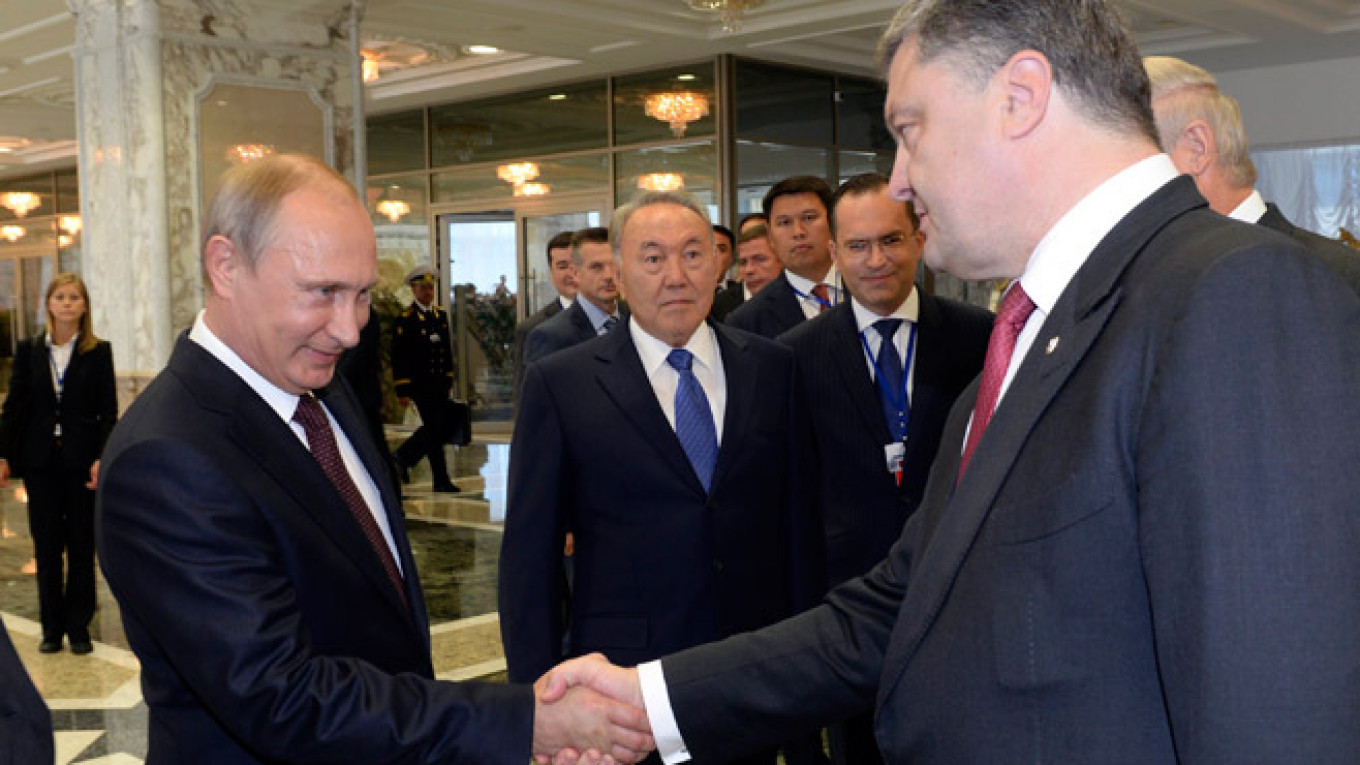At a pro-Kremlin youth camp at Lake Seliger on Friday, President Vladimir Putin said it was imperative to force Kiev to end its military operations and engage the separatists in eastern Ukraine in a dialogue on "substantive issues on the rights of people in those regions."
This is indeed his strategy. His objective is not to negotiate the terms of Ukraine's drift to the West, as German Chancellor Angela Merkel hoped to do, but to end the sovereign Ukrainian state as we know it and then reconstitute it, with or without Western consent, as a vassal to Moscow.
The immediate rationale for inserting some Russian forces into eastern Ukraine is to deny Kiev military victory over the separatists and force Ukrainian President Petro Poroshenko to accept Putin's settlement terms or risk a war with Russia.
Another goal is to scare the European Union with the prospect of another bloody Bosnia-style war in Europe and have it pressure Kiev to accept Moscow's plan for the federalization of Ukraine.
Such a deal would recognize Russia's implicit right to determine Ukraine's internal and international arrangements by granting several eastern regions confederate powers, a veto over Ukraine's geopolitical alliances and the right to pursue their own "Eurasian integration."
That is not a plan for peace. It is a blueprint for ending the sovereign Ukrainian state.
Moscow is betting on Ukraine's economic and political collapse by the end of the year. Kiev is projected to run out of money by October, with GDP this year dropping 6 percent.
To stop the advance of the pro-Russian separatists in the southeast, which could create a land bridge for the Russians to Crimea, Kiev would have to mobilize and equip a million-person army for which it has neither the money nor the time. Russia calculates that the West would not rush to provide Ukraine with economic assistance and military aid to organize sustained resistance to Russian advances into Ukraine.
Almost all outcomes — a frozen conflict, a Bosnia-type confederation,or a collapse of the pro-Western government in Kiev to be replaced by a coalition of Yulia Timoshenko and remnants of Yanukovych's regime — are acceptable to Moscow.
The unacceptable scenario is Ukraine waging a long-term war of attrition.
Ukrainian President Poroshenko's choice is stark: agree to limit Ukraine's sovereignty, walk away from eastern regions, or fight a long and bloody war for freedom.
Vladimir Frolov is president of LEFF Group, a government relations and PR company.
A Message from The Moscow Times:
Dear readers,
We are facing unprecedented challenges. Russia's Prosecutor General's Office has designated The Moscow Times as an "undesirable" organization, criminalizing our work and putting our staff at risk of prosecution. This follows our earlier unjust labeling as a "foreign agent."
These actions are direct attempts to silence independent journalism in Russia. The authorities claim our work "discredits the decisions of the Russian leadership." We see things differently: we strive to provide accurate, unbiased reporting on Russia.
We, the journalists of The Moscow Times, refuse to be silenced. But to continue our work, we need your help.
Your support, no matter how small, makes a world of difference. If you can, please support us monthly starting from just $2. It's quick to set up, and every contribution makes a significant impact.
By supporting The Moscow Times, you're defending open, independent journalism in the face of repression. Thank you for standing with us.
Remind me later.








